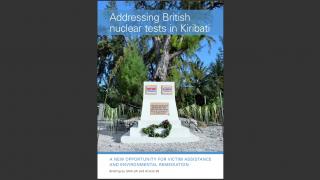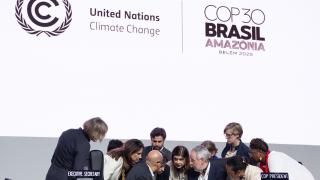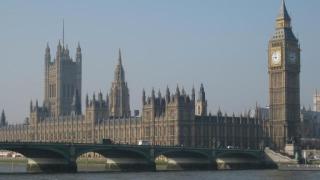
The first Meeting of States Parties (1MSP) of the Treaty on the Prohibition of Nuclear Weapons (TPNW) is taking place in Vienna from 21-23 June 2022. Countries will come together to begin operationalising the victim assistance, environmental remediation and international cooperation and assistance provisions of the TPNW.
Launched ahead of 1MSP, “Addressing British nuclear tests in Kiribati: a new opportunity for victim assistance and environmental remediation” is co-written by NGO experts and academics that have conducted significant field research relating to the UK’s nuclear testing. Authors Ben Donaldson (UNA-UK), Elizabeth Minor (Article 36), Dr Becky Alexis Martin and Dr Matthew Breay Bolton focus on the harm caused by the UK’s tests in Kiribati in the context of new opportunities for recognition and remediation, given Kiribati’s role as a state party to the TPNW.
From 1952 to 1991 the UK undertook 98 nuclear weapon tests internationally including 45 explosive nuclear weapon tests, as well as 29 minor trial series and facilitation of a further 24 tests which took place on British administered and colonised lands. These tests have had long lasting humanitarian and environmental consequences. Victims include affected communities in the countries where tests took place, including indigenous peoples, as well as the British and colonial service personnel directly involved or serving nearby.
With work under the TPNW bringing a new focus to responding to nuclear legacies, the UK has an opportunity to make a crucial contribution to addressing ongoing humanitarian and environmental impacts. Nevertheless, the UK Government has so far stated that it will not participate as an observer in meetings of the TPNW. UNA-UK together with civil society orgs, faith groups, academics and scientists is urging the UK to participate in the Vienna meetings.
Key recommendations for the UK from the briefing include:
- Recognising the rights of indigenous and local peoples, whose health and environments have been affected by British nuclear weapons testing, production and ongoing related activities and making an official apology to the local population for the testing
- Using the opportunity of the victim assistance and environmental remediation framework of the TPNW to cooperate fully with efforts to assess the harm caused as a result of the UK’s nuclear testing and provide corresponding redress, support and assistance
- Declassifying archives, studies and documentation on Britain’s nuclear weapons testing and associated programmes, including any that relate to accidents, environmental or health impacts arising from nuclear programmes or activities, and should assist affected people in their efforts to address all the impacts on their rights, including to their health, environment and access to justice
- Providing cooperation and assistance - including information, technical and financial assistance - to states working to address the impacts of UK nuclear tests on the rights of their populations and their environment
The briefing shares lived experience and expert contributions from Kiribati islanders. We hope it will be useful for UK officials, parliamentarians and civil society organisations, and complement work by others on communities affected by UK tests, including work relating to indigenous populations in Australia and the US, and nuclear veterans.






